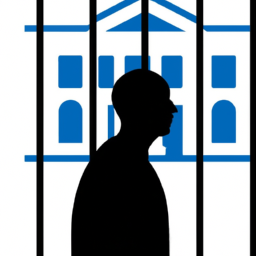Not since Eugene V. Debs campaigned from a prison cell more than a century ago has the United States experienced what might now happen: a felon running for president. The question of whether felons can run for the highest office in the land is a contentious one. There is nothing in the Constitution that prevents someone who has been charged or convicted from serving as president. However, the practical implications and public perception of such a candidacy present significant challenges.
Several states have laws stripping felons of voting rights, but the Constitution ensures that those individuals can still run for federal office. This distinction raises interesting questions about the intersection of criminal justice and political participation. In a democracy, should the ability to hold public office be contingent on one's past mistakes? This debate highlights the tension between punishment and rehabilitation.
The indictment and other ongoing criminal investigations of Donald Trump raise the real — if still remote — prospect that a leading political figure with a criminal record could seek the presidency. Former President Trump has been indicted three times and faces potential criminal convictions, but he's not barred from running for or being elected president. The criminal indictments facing Trump have raised questions about the requirements for presidential candidates and the potential consequences of electing a candidate with pending legal issues.
While the short answer is that even if Trump is convicted, the charges against him won't disqualify him from the presidency, legal experts explain that the decision ultimately rests with the voters. Ultimately, the electorate has the power to decide whether a candidate's criminal record disqualifies them from holding the highest office in the country. The potential for a felon to become president raises important questions about the values and priorities of the American people.
Running for president as a felon brings into focus the complex relationship between criminal justice, political representation, and public trust. The ability of a felon to mount a successful campaign requires overcoming numerous obstacles, including legal restrictions and societal stigmatization. It also poses a test for the American public's willingness to embrace second chances and recognize the potential for growth and redemption.
In conclusion, while felons are not legally barred from running for president, the practical and political challenges they face are substantial. The question of whether a felon can successfully campaign for the presidency remains largely untested in modern times. However, the intersection of criminal justice and political participation raises important debates about the values and principles that underpin the American democratic system. Whether a felon can ultimately hold the highest office in the land is a question that may only be answered by the American people themselves.
